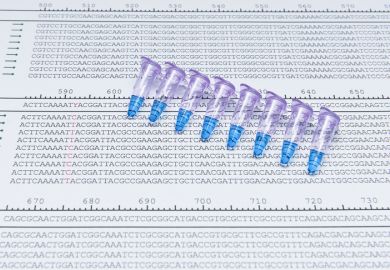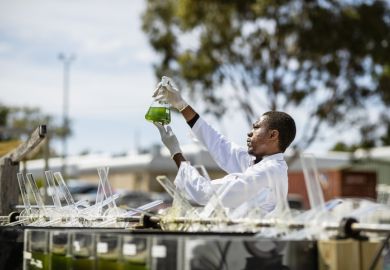The UK’s departure from the European Union could lead to a shift in regulation on stem cell research, experts have warned, as new figures show the extent of lobbying by the Catholic Church and anti-abortion groups.
A recent investigation published by the EU Observer reports that “US billionaires, some of whom are friends of American president Donald Trump, are...paying anti-abortion groups in Europe tens of millions of dollars to influence policy and law”.
According to the EU transparency register, the Commission of the Episcopates of the European Union (Comece), which was created in Brussels in 1980, spent between €1 million (£900,000) and €1.25 million last year on trying to influence EU institutions. Comece suports the EU’s bans on Brussels research funding being used for scientific projects that involved embryo destruction.
Julian Hitchcock, a life sciences specialist at the law firm Bristows, said that life sciences regulation at the European level had “benefited massively through the leadership of the UK” and “having one less liberal democracy and major life science player” involved in the conversation, as a result of Brexit, meant that the “laws are more exposed than they would be” otherwise.
“In the past, the presence of strong liberal countries (including the UK) helped to ensure that extreme ideas were lost or mollified. The absence of British commissioners, MEPs and judges removes a powerful brake,” he said.
Mr Hitchcock predicted that “a great deal of the lobbying was fuelled by an exaggerated idea about the powers of the EU”, but said that “blundering away may succeed over the longer term”.
“If the Council of Ministers had been unmoved by our legal opinion on genetic testing [which argued that the EU lacked the competence to enact legislation on in vitro diagnostic medical devices], and nodded through the Passau amendments, the effect would have been to widen the scope of the Union’s competence, nibbling away at national discretion over matters that are otherwise deemed to fall exclusively to them,” he said.
Mr Hitchcock added that this “extension of power” was seen in the 2011 European Court of Justice judgment that inventions derived from human embryos were not patentable, which was justified “on the grounds that human embryo research is unethical in all member states”. The ban was lifted in 2014.
“In this way, even ham-fisted action – in this case brought by an environmental lobby group, though applauded by the Catholic Church – at the EU level may batter through to the national level,” he said.
Anne Corbett, a senior associate at LSE Consulting and an expert on higher education and the EU, said that “the UK has been a hugely valued player within science circles, reputed for world class research, and in a changing world where these things are questioned, ethical”.
“So indeed the UK’s exit will mean less ethical players have an opportunity to try and step in,” she said.
A European Commission spokeswoman said that the organisation “maintains open, transparent and regular contacts with the representatives of religious non-confessional groups”.
“It is an important part of policy-making to be open and to listen to a wide range of views from different stakeholders and to hear different points of view,” she said.
The transparency register also reveals that the New York-based World Youth Alliance, an organisation that is against abortion, contraception and IVF, received €58,000 in grants from the Erasmus+ student mobility programme in 2017.
Register to continue
Why register?
- Registration is free and only takes a moment
- Once registered, you can read 3 articles a month
- Sign up for our newsletter
Subscribe
Or subscribe for unlimited access to:
- Unlimited access to news, views, insights & reviews
- Digital editions
- Digital access to THE’s university and college rankings analysis
Already registered or a current subscriber?








